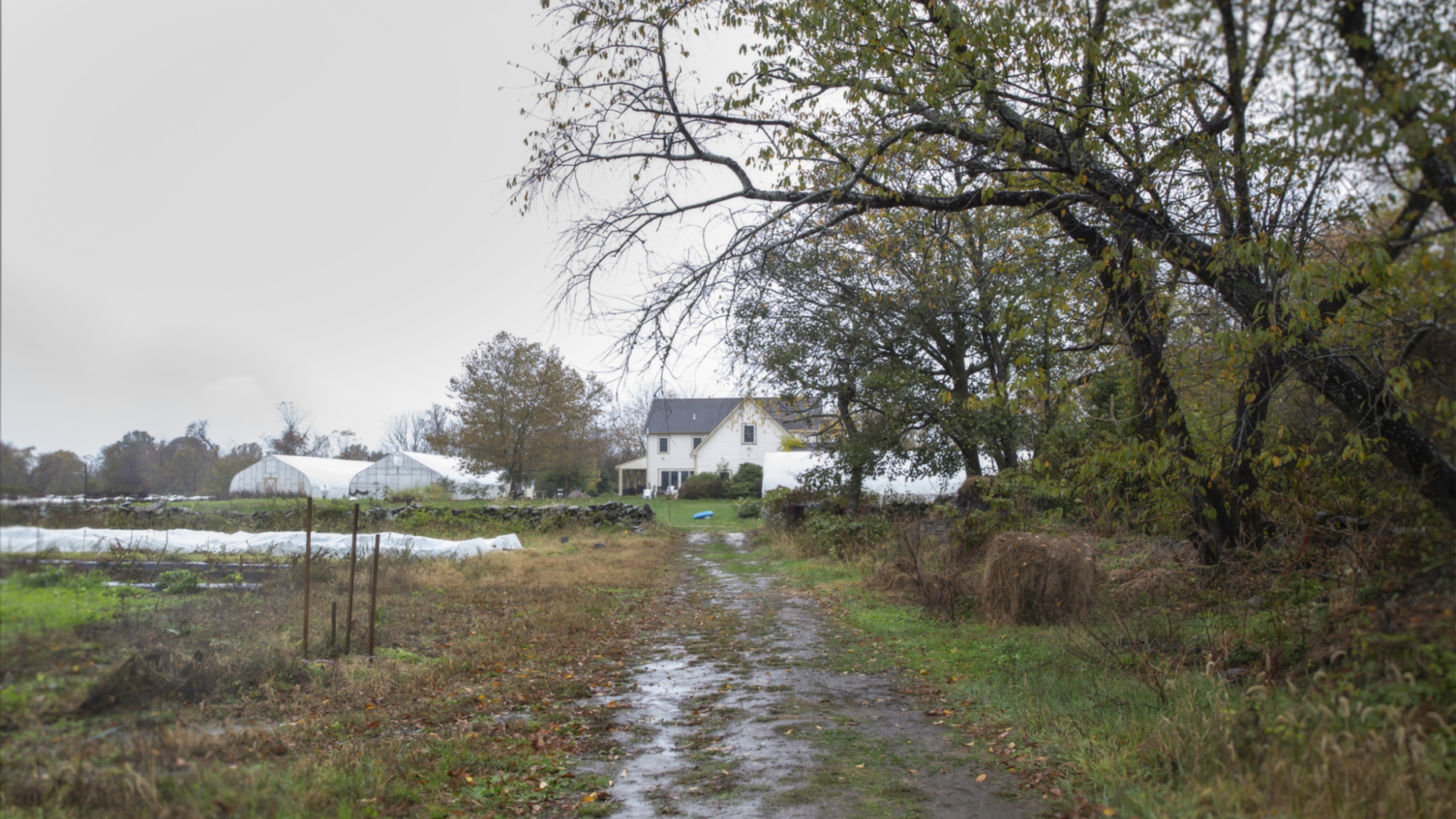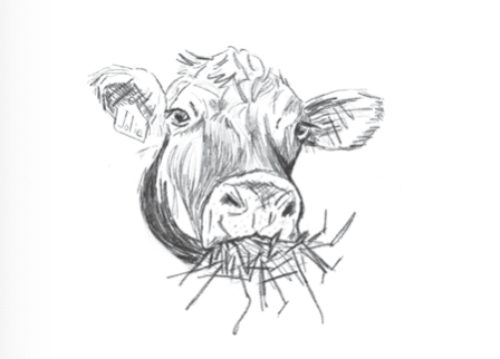
Grants & Scholarships
The Future of Food
Creating a sustainable food system
“There is so much amazing work around food going on in the state. Everyone is busy, and all are very good at what they do. But they don’t have the opportunity to come together to talk about larger challenges and opportunities,” says Nessa Richman, network director of the Rhode Island Food Policy Council (RIFPC). “The Food Policy Council is the special sauce that brings out the piece that can only grow from collective action—that idea that we can accomplish more together than we can separately.” The Council brings together stakeholders from diverse food-related sectors to look at our state’s food systems, how it operates, and what can be done to improve it.
Having led the Council for the past five years, Nessa understands the history of the RIFPC and why it was formed 11 years ago. “A diverse group of seasoned professionals set out to integrate food access, climate, and food business with an overlay of equity and justice,” she says. “Centering equity right from the start was not by accident. What those founders did 11 years ago is still part of our mission today.”
Rhode Island Foundation has been a partner since the beginning, providing nearly one million dollars to establish and support the Council’s work over the past decade-plus.
A food system includes all the processes involved in feeding people: production, harvesting, and processing of food; food aggregation, distribution, and marketing; food consumption, and ultimately, the care and treatment of food waste.
Working to build equitable solutions to food access and nutrition
The Rhode Island Food Policy Council works with partners across our state to dismantle obstacles to healthy food access caused by poverty, systemic inequities, limited mobility, and other complexities. While the Council is not a direct provider, they support the agencies that are—from state-led organizations to community-based programs.

Rescuing Leftover Cuisine
“When we find something that takes on two or three of our priorities—such as Rescuing Leftover Cuisine (RLC)—that’s our bullseye and people generally have lots of energy for it,” says Nessa.
The ten-year-old nonprofit organization is intent on ensuring that good food does not go to waste by practicing a rescue hierarchy system: first, feed it to people; if people can’t eat it, feed it to animals; if animals can’t eat it, use it for composting. RLC has reached amazing numbers in a short period of time: since 2021, more than 44,000 pounds of food has been rescued in Rhode Island, providing nearly 37,000 meals statewide.
“At the federal level, there is a tax incentive for donated food, and many states are implementing state tax incentives as well,” continued Nessa. “Galvanized around this, we put together a policy paper, invited legislators to attend a briefing, and then presented to the House Small Business Committee. Hopefully, the legislation will pass this session. Business owners will get a tax incentive, people will get what they need, and it won’t go into the landfill—it’s a win-win-win situation.”
Headquartered in New York City, RLC currently operates independent branches in eight states. Council member Dana Siles started the Massachusetts and the Rhode Island branches and currently serves as director of both.
“The work we do today to improve policy will significantly impact future generations,” says Dana. “We aim to incentivize food donation, increase liability protections for businesses that experience surplus food, and improve other food waste legislation.”
Every Friday afternoon, a RLCRI volunteer picks up food from Khipi, a unique concept kitchen that sends out a two-item global-cuisine menu every Thursday and delivers that food to its customers on the following Tuesday.
On this Friday, Khipi’s leftover Lebanese kibbeh (with side dishes) is making its way to the Providence Rescue Mission, where it will provide at least 50 meals. Khipi owner Brinda Sen, below, says the clients there look forward to her ever-changing menu of global fare.
Empowering farmers, fishers, businesses, and entrepreneurs—food business and economy
Today, there are 1,200 farms on 57,000 acres in Rhode Island. According to the Rhode Island Department of Environmental Management, Rhode Island’s agriculture and plant-based industries support over 23,000 jobs and contribute nearly $3.5 billion to the economy each year. Agriculture is among Rhode Island’s top industries, along with health services, tourism, and manufacturing. Availability of land is paramount to keeping it there—in a state that features some of the highest-priced farmland in the country.

Sweet & Salty Farm
Andrew Morley’s 33 Jersey cows would normally be grazing, but today are getting hay in the barn. “It has been so wet that they can’t go out in the fields—in the pasture they feed on natural grasses for 95% of their food. So, we move them in and out every day—you have to know when to move them to another field so that they don’t overgraze,” says Andrew. “It’s a dance with the cows and the pasture ecosystems.”
Sweet & Salty Farm currently sells eight kinds of cheese, using their own original recipes. And their grass-fed Jersey cows help them produce sweet whole milk yogurt with a golden creamy top. As a member of the Council, Andrew serves on the climate and environment working group as well as on two subgroups advocating for farm bills and land access policies.
“The Food Policy Council really reaches out on the grassroots level,” he said. “I am a farmer, a husband, and a father and what little time I have, I am giving to RIFPC as they stitch together various constituents through food policy. It pulls together people like me who are directly impacted by the food system, and they let us talk to legislators and policy-makers. With the Council’s expert guidance, we move the needle.”

Addressing climate and environment issues through food systems
According to the UN Food and Agriculture Organization, one-third of all human-caused greenhouse gas emissions are linked to food systems. RIFPC wants to change that by limiting food waste and organic materials in landfills.

Groundwork RI
“We collect food scraps from residences, restaurants, and institutions across the city by bicycle and process them into a resource for the urban growers of our community,” explains Ella Kilpatrick Kotner, a 2019 Brown graduate with a degree in environmental science who serves as Harvest Cycle Program Coordinator and is an RIFPC member.
“There are like-minded people like me on the Council thinking about wasted food—composters, farmers, restaurant owners, and policy people like Nessa who help me see my role within the larger food system. The Council gives us a platform—you have to work within the system if you are going to make a change. But you have to first gain access and the RIFPC serves as a conduit.”
Growing educated stakeholders, informed youth, and a robust food sector workforce
RIFPC works to ensure that everyone knows how to be an informed food-system member and encourages those who want to find a career in the food sector to explore the opportunities it presents.
RIFPC supports teacher-training programs covering our food system, high school programs in food sector-related fields that can lead to careers, and college degree programs designed to ensure a workforce educated to meet the current and future needs of the state’s food sector businesses. The Council undertook a three-year process with RI Landscape & Nursery Association to establish an associate degree program related to food systems at Community College of Rhode Island (CCRI) with potential to continue at URI. August 2022 saw the start of CCRI’s first interdisciplinary degree (business and sciences) yielding a degree in Environment, Sustainability, and Management.

CCRI Environment, Sustainability, and Management Associate Degree
“More education for people doing stuff environmentally is never a bad thing,” says Gaines Tyler, assistant professor in Biology at CCRI. “This new degree program gives me the opportunity to introduce additional curriculum for the college—so far, I have created a trees and shrubs course, a colleague has developed a biology of insects course, and another, a soil science course.”
The curriculum explores topics in land, water, and air; how humans positively and negatively impact their local and global environments; business management, entrepreneurship, innovation, and design; and includes a cooperative work experience with an employer in agriculture, sustainability, or a related field.

“The number of small farmers is blooming ‘like wildflowers in the spring’—they will need to know how to manage their soil and crop rotations, and they can learn this almost for free within our two- year program,” noted Gaines.
In Closing
With the support of many partners, including the Rhode Island Foundation, Governor Gina Raimondo in 2016 announced the hiring of the state’s (and nation’s) first director of food strategy. The goal is to work collectively with other New England states to produce 30 percent of the food consumed in the region by 2030 and increase that goal to 50 percent by 2050.
Meeting that goal would go a long way toward solving many of the state’s current food-related issues:
- The difficulty of surviving as a local farmer or fisherman
- Inadequate access to healthy food options is linked to high rates of diabetes, heart disease, and obesity, disproportionately affecting minority and low-income communities
- Food insecurity, which the Rhode Island Food Bank reports affects 31 percent of Rhode Islanders
- The RI Central Landfill (which is projected to run out of space by 2040) collects tons of trash daily, 722 tons of which is food, emitting methane gasses that affect the quality of the air we breathe and the water we drink
- The state’s reliance on agriculture and production from areas that will be prone to drought and harsh weather conditions as we adjust to a changing climate
The RIFPC continues to see opportunities for purposeful change in Rhode Island’s food system: how the food system impacts and is impacted by climate change; the development of an equitable, regional food economy; access to healthy food as a human right; and a robust and educated workforce that sustains our food sector economy. Capitalizing on these opportunities will require abandoning a siloed approach between agriculture, health, and environmental policies, as well as overcoming knowledge gaps, resistance from interest groups, and differing values.
Dana Siles with Rescuing Leftover Cuisine says it well: “My involvement with the RIFPC has fueled my sense of purpose, and my responsibility to be a part of the solution.”




